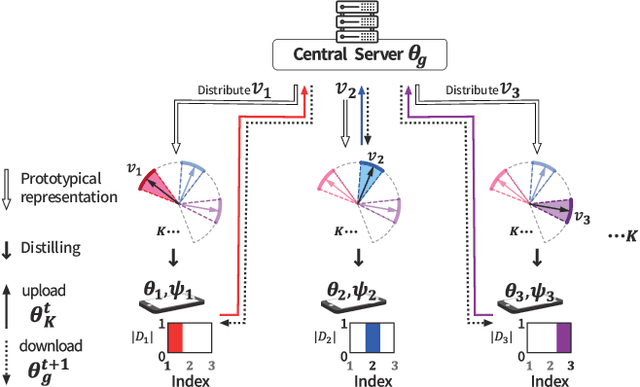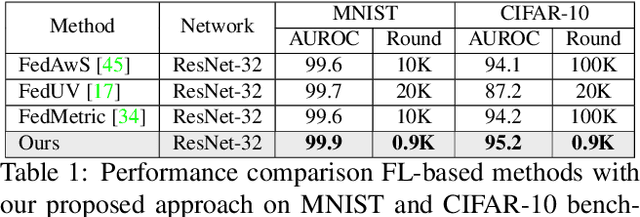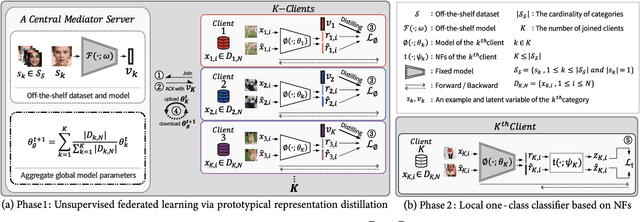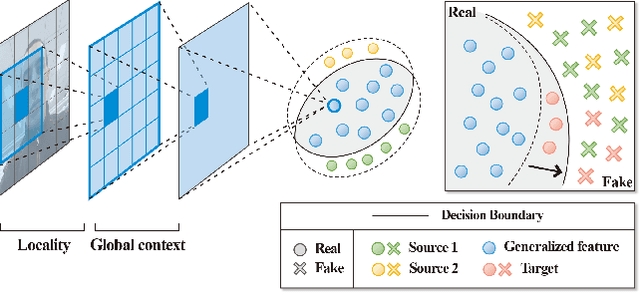Jinho Shin
ProtoFL: Unsupervised Federated Learning via Prototypical Distillation
Aug 08, 2023



Abstract:Federated learning (FL) is a promising approach for enhancing data privacy preservation, particularly for authentication systems. However, limited round communications, scarce representation, and scalability pose significant challenges to its deployment, hindering its full potential. In this paper, we propose 'ProtoFL', Prototypical Representation Distillation based unsupervised Federated Learning to enhance the representation power of a global model and reduce round communication costs. Additionally, we introduce a local one-class classifier based on normalizing flows to improve performance with limited data. Our study represents the first investigation of using FL to improve one-class classification performance. We conduct extensive experiments on five widely used benchmarks, namely MNIST, CIFAR-10, CIFAR-100, ImageNet-30, and Keystroke-Dynamics, to demonstrate the superior performance of our proposed framework over previous methods in the literature.
Robust face anti-spoofing framework with Convolutional Vision Transformer
Jul 24, 2023



Abstract:Owing to the advances in image processing technology and large-scale datasets, companies have implemented facial authentication processes, thereby stimulating increased focus on face anti-spoofing (FAS) against realistic presentation attacks. Recently, various attempts have been made to improve face recognition performance using both global and local learning on face images; however, to the best of our knowledge, this is the first study to investigate whether the robustness of FAS against domain shifts is improved by considering global information and local cues in face images captured using self-attention and convolutional layers. This study proposes a convolutional vision transformer-based framework that achieves robust performance for various unseen domain data. Our model resulted in 7.3%$p$ and 12.9%$p$ increases in FAS performance compared to models using only a convolutional neural network or vision transformer, respectively. It also shows the highest average rank in sub-protocols of cross-dataset setting over the other nine benchmark models for domain generalization.
 Add to Chrome
Add to Chrome Add to Firefox
Add to Firefox Add to Edge
Add to Edge